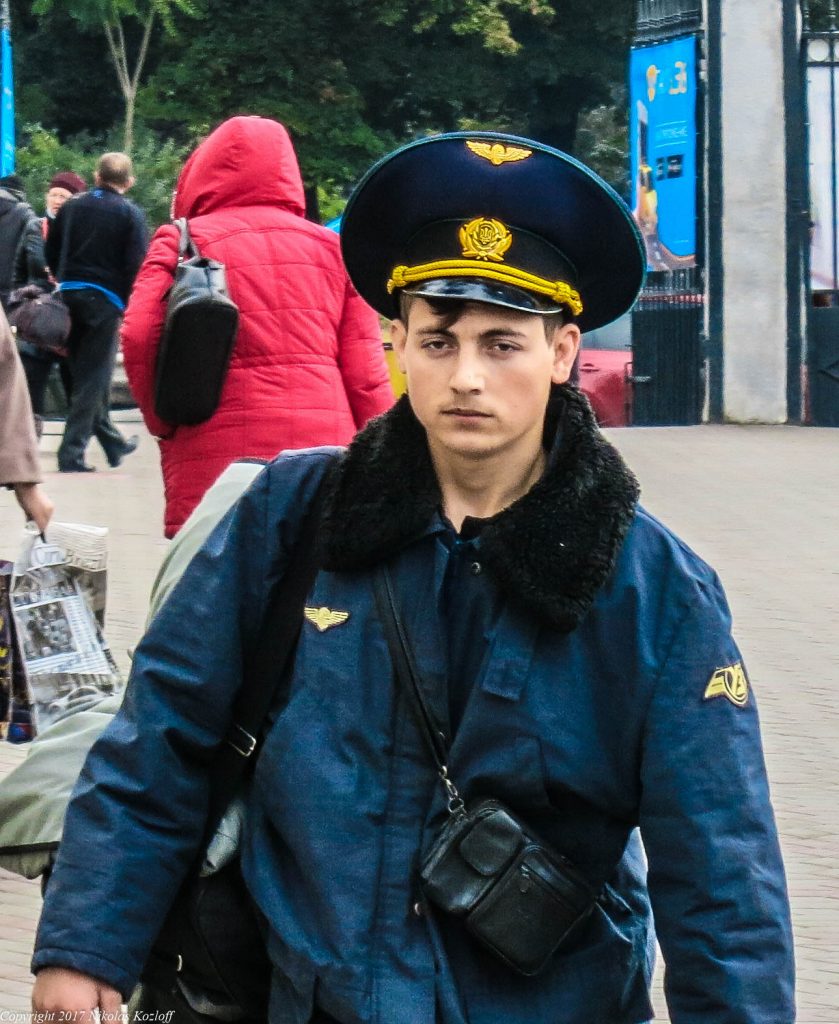
Black Sea Port of Odessa Reflects on Third Anniversary of Ethnic Strife
Nearly three years ago, the Ukrainian Black Sea port of Odessa looked as if it might succumb to a downward spiral of ethnic hatred and violent strife. The trouble all started when pro-Ukrainian demonstrators and local soccer fans were attacked by armed separatists. It’s unclear who was behind the attack though some observers claim it may have been a mix of Russian saboteurs, local criminals and pro-Russian activists. In the ensuing violence, four pro-Ukrainian protesters died and the pro-Russian crowd withdrew to a local trade union building. Both sides then hurled Molotov cocktails at each other which resulted in the building catching fire. When the first floor was engulfed in flames, people retreated to the upper floors. In panic, some jumped out of the windows and perished, which led to a further thirty eight deaths.
At the time of the riots, Ukraine was under severe political pressure and even faced possible full-scale dismemberment as a country. Some months earlier, the Maidan revolution had toppled the pro-Kremlin government of Viktor Yanukovych, which in turn set off alarm bells in Moscow. Hoping to capitalize on political instability in Kyiv, Putin promptly annexed the Crimea, to the south of Odessa, and backed pro-Russian separatists in the Ukrainian east. Naturally, attention quickly turned to Odessa itself, Ukraine’s third largest city with a substantial Russian minority population. At the time, some observers worried that “Ukraine is in grave danger of collapsing as a country.”
Veering Back From the Brink
To be sure, Putin stood to gain by stirring up unrest in Odessa though it’s unclear whether the Kremlin was openly leading or directing such destabilization efforts. At first, an obscure pro-Russian group called for a referendum on greater Odessa autonomy from Ukraine. Later, in an echo of developments in the Ukrainian east, pro-Russian forces reportedly declared a “People’s Republic” of Odessa. Ukrainian media reports claimed that in advance of the May, 2014 riots, pro-Russian agitators in Crimea boarded trains and buses to Odessa in the hope of fomenting trouble.
Fortunately, Odessa has been spared the fate of Crimea, let alone the kind of open warfare which has prevailed in the east. Indeed, it is remarkable just how fast pro-Russian efforts fizzled in Odessa, a city which successfully veered back from the brink. In the wake of disturbances, Kyiv sent a detachment of elite National Guard troops into the city to restore order. Though pro-Russian elements later staged sporadic bombings in the city, Odessa has managed to restore a sense of calm and there doesn’t seem to be much of an appetite for outright secession.
That, at least, is the impression I get from speaking to Sergei Ischenko, a local journalist and former Maidan political activist. I catch up with Ischenko at his apartment, located in the old Jewish quarter of Moldavanka. The most radical pro-Russian group disappeared after the 2014 riots, he says, and militants have emigrated to Russia, Germany or Crimea. “Right now,” he adds, “this movement is headless.” In the event that Putin would be so rash as to invade Odessa, Ischenko thinks people would rally to Ukraine and resist Russian encroachment. Some polling suggests Ischenko may be right, with only a tiny minority in Odessa favoring outright Russian annexation.
Assessing Russia’s Interests
Walking around Odessa, I find it a little odd that Russia would even consider annexing the city. Indeed, Odessa’s cobblestone streets and pavement are dilapidated, full of potholes and in dire need of repair. At night, such streets are unlit which made me feel slightly menaced. While the city’s trams are picturesque, they also look as if they could be upgraded or modernized. Odessa’s historic art nouveau and neo-classical buildings, meanwhile, are certainly ornate though they too seem to be crumbling with the passage of time.
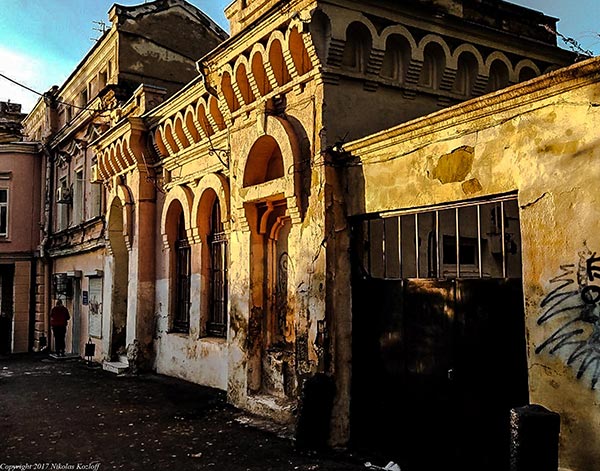
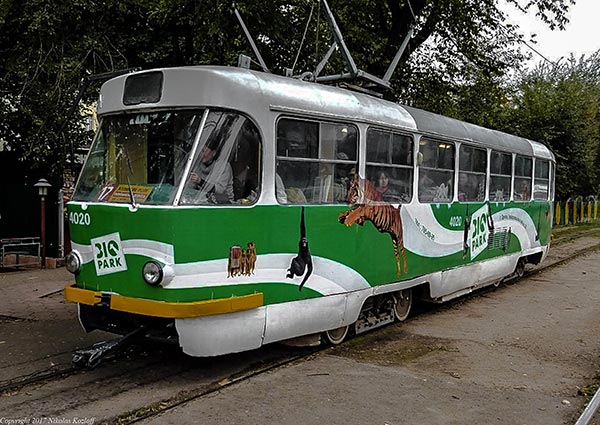
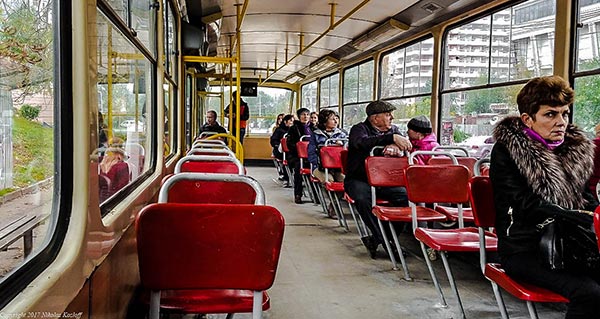
Why would Putin even bother with Odessa, given the city’s glaring lack of basic infrastructure? For insight into these matters, I catch up with Denys Yacovlev, a professor of political science and sociology at Odessa National University. For the past few years, he says, the political establishment has been warning that Russia will invade tomorrow. “That was frightening for many people,” he remarks, “but now it’s unlikely that people still believe these statements. You can’t cry wolf too often.”
Still, some observers point to Russia’s vital geostrategic interests: Odessa is the most important Black Sea port in Ukraine, from whence vital commodities are exported all over the world including wheat, coal and steel. The city is also home to the country’s largest oil and gas terminal. Moreover, Odessa has military significance since Ukraine wants to turn the city into a new base for its navy. Such plans have assumed a certain importance since Ukraine lost its other base at Sevastopol which was annexed by Russia. If Kyiv were to lose Odessa close on the heels of the Crimean annexation, Ukraine would basically become a landlocked country. Lastly, Russia might want to link Odessa with other assorted and motley territories in the Black Sea area, including eastern Ukraine, Crimea and Transnistria. The latter, which is a breakaway region of Moldova, lies just 60 miles away from Odessa, and hosts a detachment of Russian troops.

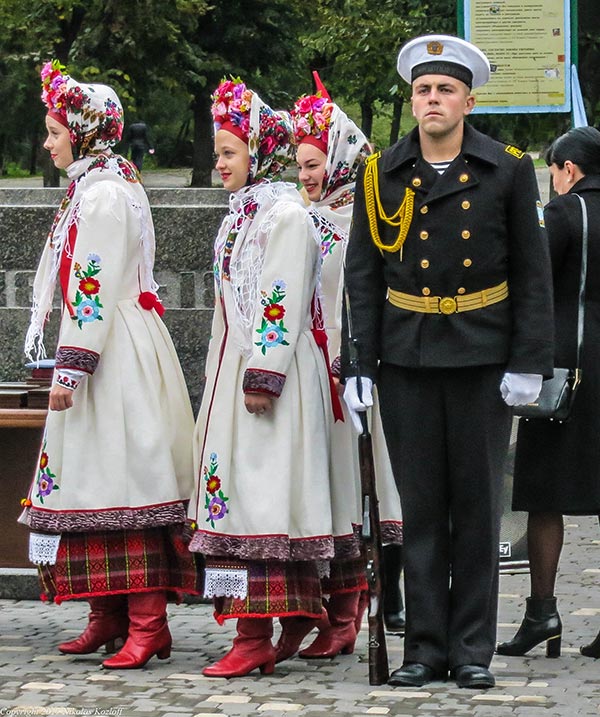


“Russian Community” of Odessa
Just what do Odessa’s Russians make of such dramatic developments? One must be careful not to fall into stereotypes here, since Odessa can be a little confusing to the outside observer. To be sure, thirty percent of the city’s one million people can be defined as “ethnic Russians,” and the primary language spoken in Odessa also happens to be Russian. Empress Catherine the Great founded Odessa in 1794, and to this day city streets display the names of famous Russian writers who spent time here, including Gogol and Pushkin. In 2010, most people in the Odessa region voted for former pro-Russia president Viktor Yanukovych.
On the other hand, writes Slate, “The easy labels of ‘pro-Ukrainian’ and ‘pro-Russian’ groups—the standard shorthand in Western media accounts—are inadequate descriptions of the complex identities, motivations, and backgrounds now dividing Ukraine.” According to Ischenko, “there is no ‘Russian community’ in Odessa and the situation doesn’t break down exclusively on ethnic lines, since there are a lot of Russians who are pro-Ukrainian, and lots of Ukrainians who are pro-Russian.” The journalist adds that the “conflict” in Odessa is political in nature, and “the difference between Russians and Ukrainians here is akin to comparing Americans and Canadians.” If anything, Ischenko adds, generational differences may be more worth considering, with Odessa’s young folk tending to skew toward multi-culturalism and western pluralism, and older, more religious people skewing toward pro-Russia views and xenophobia.
Historic Moldavanka
What then does the future hold for Odessa, in the midst of an increasingly more assertive Russia? In previous times, the city had its own unique, multi-cultural and cosmopolitan identity, separate from Ukrainian identity. Nevertheless, the cumulative effect of the Maidan revolution and war in the east may undermine such regional identity in favor of patriotism or nationalism. “Currently,” Ischenko tells me, “ethnic-based nationalism is not popular, even among radically patriotic groups.”
Yacovlev, the professor, seems to agree: after Ukraine achieved independence from the Soviet Union in 1991, he says, fifty percent of the people living in the country identified as Ukrainian. However, he says that figure has increased since the Maidan revolution, and now a full seventy percent of people around the country, and also within Odessa itself, define themselves as Ukrainian.
Despite this, there’s always a risk of multi-cultural tensions and one can only hope that outside agitators won’t seek to exploit Odessa’s delicate ethnic balance. Historically, Odessa has been a great melting pot of ethnicities and religions. Take, for example, Ischenko’s neighborhood of Moldavanka, which at one time rivaled New York’s Lower East Side for sheer diversity. At first the neighborhood was home to Romanian-speaking Moldavans, but later welcomed Bulgarians, Albanians, Greeks and others. By the middle of the nineteenth century, Moldovanka became an increasingly Jewish neighborhood where Yiddish was spoken widely.
Multi-Ethnic Odessa
While Odessa is not quite as diverse as it used to be, the city is still more varied than other Ukrainian urban centers and major thoroughfares bear the names of Jewish Street, Greek Street and Bulgarian Street. Ischenko says many of these ethnic groups, for example the Bulgarians, are still present in Odessa though different people don’t have their own neighborhoods but rather wind up getting broadly assimilated into the city. Other minorities include Greeks, Roma, Albanians and Gagauz, a Turkic-speaking people.
In addition to Odessa’s historic ethnic groups, the city has welcomed other people including Vietnamese and Chinese, who have no relationship to Russia, Ukraine or underlying political and historic tensions. Asian traders arrived in the post-Soviet period, but then decided to stay. In general, Ischenko declares, ethnic groups in Odessa don’t identify on political lines but rather on cultural grounds. For instance, one Ukrainian deputy MP is Bulgarian, though he’s not a nationalist.
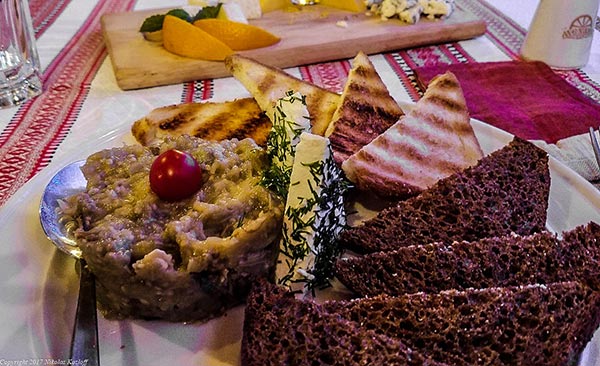
There are religious minorities in Odessa too, like the city’s 30,000 Muslims which are mostly comprised of ethnic Tatars. Walking along local streets, I come upon the Al-Salam Mosque and Arabian Cultural Center, built by wealthy Syrian Adnan Kivnan. Today, the mosque is Odessa’s only monument to Islam, which is ironic in light of the city’s earlier history: before Catherine conquered Odessa, the city was a Turkish fortress called Kocibey. Muslims aren’t the only religious minority in the city: though Jews suffered in the Czarist period and were later decimated during the Holocaust, Odessa still displays a substantial Jewish population.
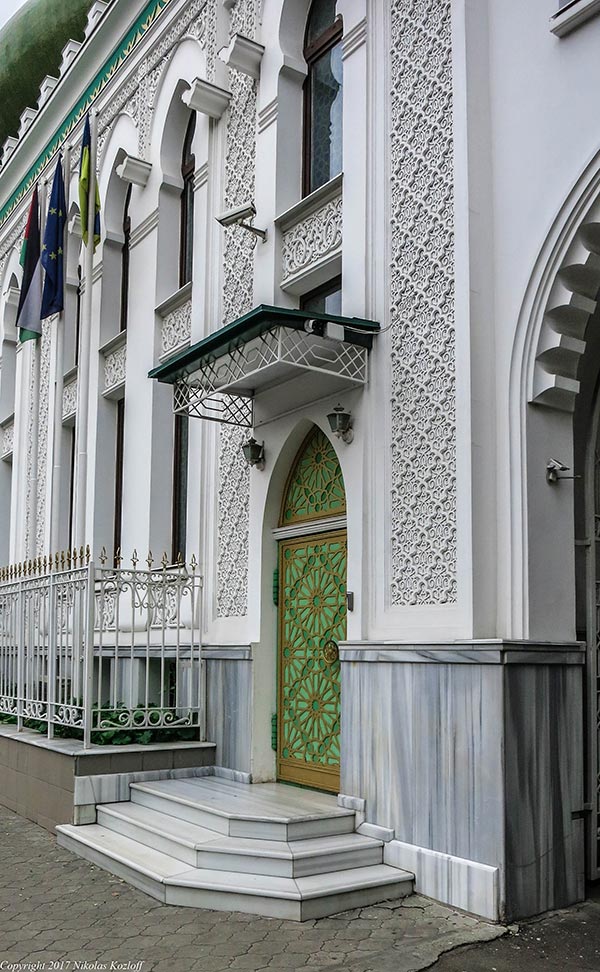
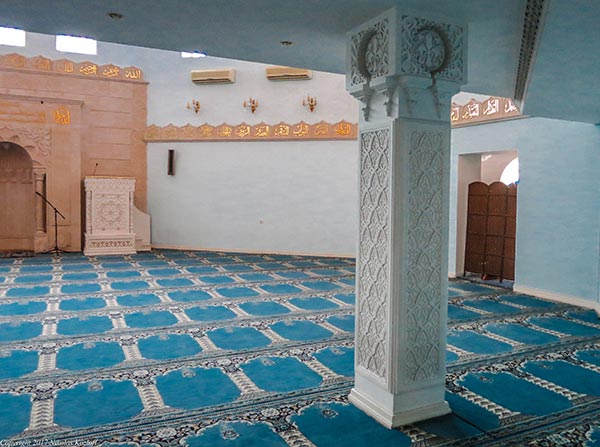
Ethnic Minorities and Ukrainian Nationalism
Where do ethnic minorities stand in relation to Ukraine’s larger tumultuous politics and Russian intrigue? Fortunately, Ischenko says the authorities haven’t sought to enforce any kind of systematic political discrimination toward ethnic minorities, and in general “Maidan made ethnic minorities more patriotic and this could help to integrate groups into society.” Nevertheless, minorities may literally run into informal discrimination on a day-to-day basis. Ischenko, who used to work as a teacher, says Ukrainian and Russian children do not relate very well toward Roma or Gagauz kids. Locals see Tatars as pro-Ukrainian, so inter-ethnic relations have improved recently, though in general “relations with Muslims are just Ok at best.”
The rise of Ukrainian nationalism has added an additional twist to the already complex ethnic mix within Odessa. Though Maidan was itself a multi-ethnic movement, the revolution also unleashed right wing Ukrainian nationalism. Fortunately, Odessa’s rightists aren’t very numerous nor have they been as violent as one would have feared. At the height of Maidan, Ischenko estimates the right wing may have accounted for anywhere between 100-150 demonstrators within larger Odessa marches of up to 10,000 people. Similarly, right wing political parties receive a low percentage of the overall vote in elections.
Ischenko, who himself skews toward the independent left circuit, adds that the far right actually avoids ethnic chauvinism and xenophobia, though some may harbor anti-Semitic sentiments under the radar. Having witnessed how ethnic and religious minorities supported the Maidan movement, some racist soccer hooligans seem to have veered back from their extremist views. “They now say, well maybe the Crimean Tatars or the Jews aren’t so bad,” Ischenko remarks. To make matters even more bizarre, some ethnic minorities have actually joined forces with the nationalists. Ischenko says he knows of one Russian Jewish man who joined Praviy Sektor or Right Sektor, a political party, and another Asian linked up with rightist politics. “That’s Odessa!” exclaims Ischenko, as I reflect upon the city’s outlandish contradictions.
Muslims and Jews
Nevertheless, even though they aren’t very numerous, rightists can still cause mischief and thereby disturb Odessa’s delicate ethnic balance or tilt minority local opinion toward Russia. At the height of disturbances in Odessa three years ago, Vice News ran an article claiming some local Muslims feared the rise of Ukrainian nationalism. Some called Russia “a friend,” while others decried the “racist” Kyiv regime. Perhaps, Muslim views are informed by their own historical experience: under the Soviets, a local mosque was razed and its Mullah shot. Reportedly, the Al-Salam mosque isn’t even technically a mosque, since “local leaders refused it a minaret fearing reprisals from local Orthodox Christians.”
Meanwhile, in light of historic persecution, local Jews certainly have just cause to be fearful of both Russian and Ukrainian extremism. However, prior to disturbances in 2014, Odessa had witnessed a Jewish cultural revival in the city. Such progress was placed in jeopardy during Odessa’s civil strife, when Jews feared for their safety. Reportedly, some Jews even held discussions about evacuation in the event of further civil strife.
Pavel Kozlenko, the director of Odessa’s Holocaust museum, said he would not leave Odessa despite his feelings of dismay. Speaking with Jewish Telegraphic Agency, he remarked “I can’t reconcile what I saw with my belief in this city of tolerance, which is home to more than a hundred nationalities, which produced such outstanding personalities of science, culture and art. I thought such events could not happen here.” To get a clearer sense of the Jewish perspective, I catch up with Kozlenko personally at the Holocaust museum. “When riots occurred,” he says, “Jews were concerned about themselves and this brought back memories of historic pogroms. Some people even thought there might be war.” Kozlenko adds that the local Jewish community is somewhat divided psychologically, with older folk more attuned to the older, Soviet era while the younger generation is more identified with Ukraine.
As riots flared in 2014, Nazi symbols were scrawled on a local Holocaust monument, including swastikas, the SS Wolfsangel sign, and a Praviy Sektor tag. It’s impossible to know who actually vandalized the site, and to be sure Right Sektor itself disavowed the incident. Some Ukrainians, including Jewish leaders, suggested the vandalism may have been a Russian frame-up designed to discredit Ukraine. Indeed, Putin has called the EuroMaidan movement anti-Semitic in nature. Tragically, Jews were caught in the rhetorical crossfire during Odessa’s tensions, with both Moscow and Kyiv accusing the other of stoking such anti-Semitic incidents.
Fearful Ethnic Minorities
If Muslims and Jews are wary, Odessa’s Greeks are downright fearful. In 2015, a group of Greek MPs and former Greek government ministers traveled to Odessa on a fact-finding mission to learn more about the wider Greek Diaspora. Amongst other things, the delegation wanted to know whether local Greeks had been threatened by neo-Nazi groups.
When delegation members got to Odessa, they were shocked to find that several dozen Praviy Sektor militants had blockaded the hotel with a picket, thus preventing visitors from exiting the building. Reportedly, militants constantly shadowed the delegation and demanded to know why the Greeks had come to Odessa (incidentally, Praviy Sektor militants might want to visit Odessa’s local archaeological museum, which showcases the rich history of Greek culture in the area, thousands of years before the mere concept of Ukraine was invented).
Demonstrators wore paramilitary outfits, masks and balaclavas while waving Ukrainian flags and banners reading “Foreigners-Russophiles have no place in Ukraine!” One Greek journalist on the delegation said the ultra-nationalists prevented visitors from communicating with the local Greek Diaspora. “If you have about 30 people in military uniforms, you get the message,” the reporter remarked. “You understand that, if you continue [to do] what you want to do, they might get violent,” he added. Concerned about reports, the European Parliament has pledged to investigate the incident as well as claims made by ethnic Greeks in Ukraine that they lack cultural rights as well as the right to education in their mother tongue. One Greek MP has also charged that ethnic Greeks confronted “constant pressure and harassment” from local authorities.
Odessa’s Future
Despite these disturbing incidents, Odessa has so far avoided descending into inter-ethnic strife or the kind of violence many feared would occur some three years ago. And yet, it remains to be seen whether the city is in the clear, since Maidan’s political legacy is still somewhat shaky. Indeed, Yacovlev warns against complacency, noting that politicians who came to power in Odessa in the wake of Maidan have faltered and their popularity is now on the wane. If such figures fail to deliver on their promises of eliminating corruption and oligarchic-style crony capitalism, then fringe elements of all stripes could take advantage of the situation for political gain.
In 2015, former Georgian president and hardened Putin foe Mikheil Saakashvili was appointed governor of Odessa. He and his team of young reformers quickly sought to rein in the practice of bribes in the customs service while making government more transparent. But according to Saakashvili, such efforts were thwarted when high-ups in Kyiv meddled with enrichment schemes which allowed many of them to become tycoons in the first place. For example, he charged, plans to open a new customs service center went aground when money set aside for its refashioning was stolen.
Frustrated by such developments, Saakashvili took the unusual step of actually setting up his office in a tent near a major highway which had not been repaired despite government pledges to improve the thoroughfare. For good measure, the Georgian compared Odessa to Chicago at the time of Al Capone. Last year, amidst much fanfare, Saakashvili resigned, claiming that Kyiv had failed to root out corruption. The Georgian, who is known for his inflammatory bravado, added that “Odessa can only develop once Kyiv will be freed from these bribe takers, who directly patronize organized crime and lawlessness.”
Odessa’s faltering economy hasn’t helped matters, either. The port city has been particularly hard hit by ongoing hostilities with the Kremlin, as Odessa’s trade with Russia has fallen off precipitously. Stagnant wages on account of the falling currency, coupled with inflation, have added to the overall climate of malaise. For Yacovlev, the economy is critical in deciding Odessa’s future. “If economic conditions improve,” he says, “more people will become integrated into Ukraine.” The professor adds that even though Russia’s cultural reach is still quite strong, for example in mass media, local ethnic communities will rally to Ukraine if their financial horizons become more promising. Furthermore, he remarks, “a lot of Russian people envision their future in an independent Ukraine.” Pausing for effect, however, Yacovlev declares, “If political reforms fail, on the other hand, extremism will triumph.”

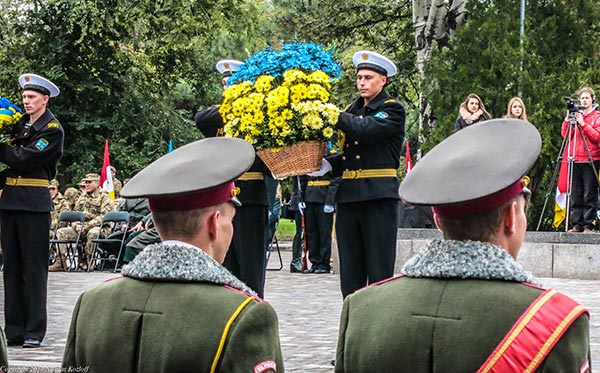
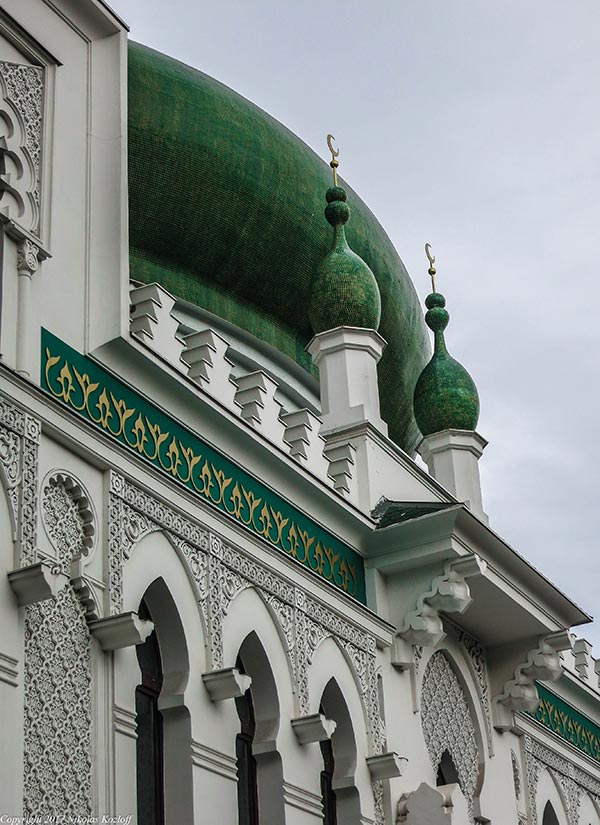
Leave a comment